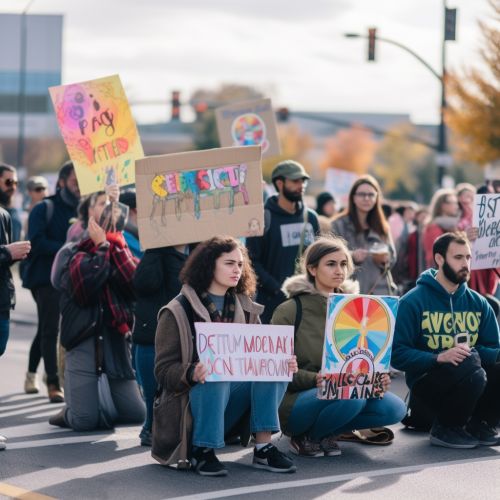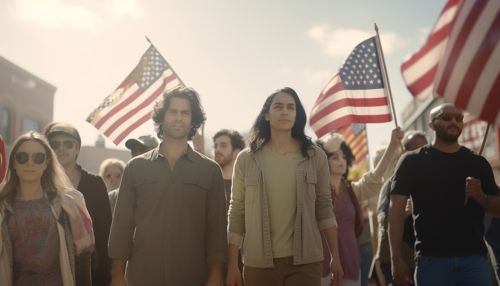Political activity
Introduction
Political activity refers to any action or behavior that involves the exercise of power or the attempt to influence government policy. It encompasses a broad range of activities, from voting in elections to participating in protests, lobbying, or running for office. Political activity can be undertaken by individuals, groups, or organizations and can take place at the local, national, or international level.
Types of Political Activity
There are several types of political activity, each with its own unique characteristics and implications.
Voting
Voting is one of the most common forms of political activity. It involves citizens casting ballots to choose their representatives in government. Voting is a fundamental right in democratic societies and is often seen as a civic duty.
Protesting
Protesting is another form of political activity that involves individuals or groups expressing their opposition to certain policies or actions. Protests can take many forms, from peaceful marches to acts of civil disobedience.
Lobbying
Lobbying involves individuals or groups attempting to influence government policy or legislation. This is often done by professional lobbyists who represent specific interest groups.
Running for Office
Running for office is a form of political activity that involves individuals seeking to hold a position in government. This can range from local offices, such as city councilor, to national positions, such as president or prime minister.


Factors Influencing Political Activity
Several factors can influence an individual's likelihood of engaging in political activity.
Political Efficacy
Political efficacy, or the belief that one's actions can influence political outcomes, is a key factor in political participation. Individuals who believe their actions can make a difference are more likely to engage in political activity.
Socioeconomic Status
Socioeconomic status also plays a role in political activity. Individuals with higher levels of education and income are more likely to participate in political activities, particularly those that require resources, such as lobbying or running for office.
Political Socialization
Political socialization, or the process by which individuals learn about and form their political beliefs and values, can also influence political activity. This process is influenced by a variety of factors, including family, education, and media.
Impacts of Political Activity
Political activity can have a significant impact on society and government.
Policy Change
One of the primary impacts of political activity is policy change. Through actions such as voting, lobbying, and protesting, individuals and groups can influence government policy.
Political Representation
Political activity can also impact political representation. By running for office and voting, individuals can help ensure that their interests and perspectives are represented in government.
Social Change
Political activity can also lead to social change. Protests, for example, have played a key role in movements for civil rights, women's rights, and environmental protection.
